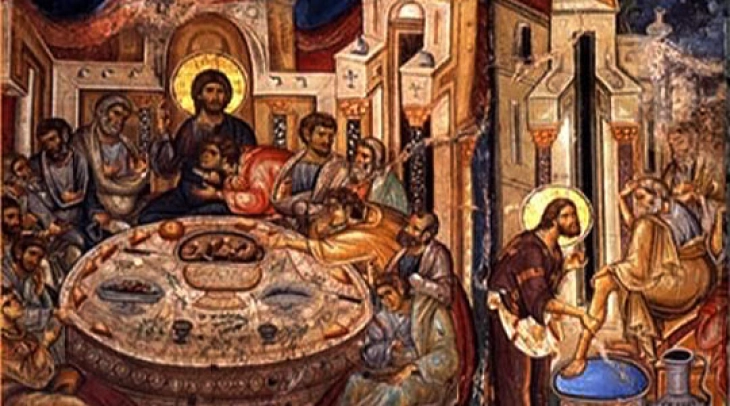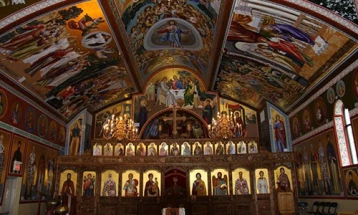Religious calendars
- Both Menas and Hermogenes were born in Athens.

Religious calendars
23 December 2023 (MIA)
Macedonian Orthodox Church Calendar
The Holy Martyrs Menas, Hermogenes and Eugraphus
Both Menas and Hermogenes were born in Athens. They both lived in Constantinople, where they enjoyed the high favour of the Emperor and the honour of the people. Menas was known for his great learning and gift of speech and, although he acted outwardly as a pagan, he was in his heart a convinced Christian. Hermogenes was Eparch of Constantinople, and was a pagan through and through. He was, however, a merciful man and performed many good deeds. When dissension broke out between the Christians and the pagans in the city of Alexandria, the Emperor Maximian (285305) sent Menas to calm the turmoil and drive the Christians from the city. Menas went and restored peace, but he also declared himself to be a Christian and brought many of the pagans to the true Faith by the power of his words and the witness of his many miracles. When the Emperor heard this, he sent Hermogenes to punish Menas and to liquidate the Christians. Hermogenes brought Menas to trial, and he cut off his feet and his tongue, gouged out his eyes and then threw him into prison. The Lord Jesus himself appeared to him there, to heal and console His suffering servant. When he saw Menas miraculously healed, Hermogenes was baptised and began to preach the mighty Faith of Christ, being made Bishop of Alexandria. Then the furious Emperor Maximian came himself to Alexandria and put Menas and Hermogenes to harsh torture, which they endured courageously with the help of God’s grace. Beholding the fortitude of these soldiers of Christ and the miracles God wrought upon them, Eugraphus, Menas’s secretary, went into the judgement-hall and shouted to the Emperor’s face: ‘I too am a Christian!’ The Emperor flew into a rage, took a sword and beheaded Eugraphus himself, and then he commanded the executioner to behead Menas and Hermogenes. Their holy relics, thrown into the sea, floated in a miraculous way to Constantinople, where the bishop, forewarned in a dream, met them with great ceremony and buried them with honour.
Catholic Calendar
John of Kanty
Polish country lad. Brilliant student at the University of Cracow, Poland. Priest. Professor of theology at University of Cracow. Falsely accused and ousted by university rivals, at age 41 he was assigned as parish priest at Olkusz, Bohemia. He took his position seriously, and was terrified of the responsibility, but did his best. For a long time that wasn’t enough for his parishioners, but in the end he won their hearts. After several years in his parish, he returned to Cracow and taught Scripture the rest of his life. John was a serious, humble man, generous to a fault with the poor, sleeping little, eating no meat and little of anything else. Pilgrim to Jerusalem, hoping to be martyred by Turks. He made four pilgrimages to Rome, carrying his luggage on his back. When warned to look after his health, he pointed out that the early desert fathers lived long lives in conditions that had nothing to recommend them but the presence of God. At the time of his death, John was so well loved that his veneration began immediately. For years his doctoral gown was worn by graduates receiving advanced degrees at the University of Cracow. He was declared patron of Poland and Lithuania in 1737 by Pope Clement XII, thirty years before his final canonisation. Born June 23 1390 at Kanty, Silesia, Poland. Died December 24 1473 at Cracow, Poland, of natural causes.







